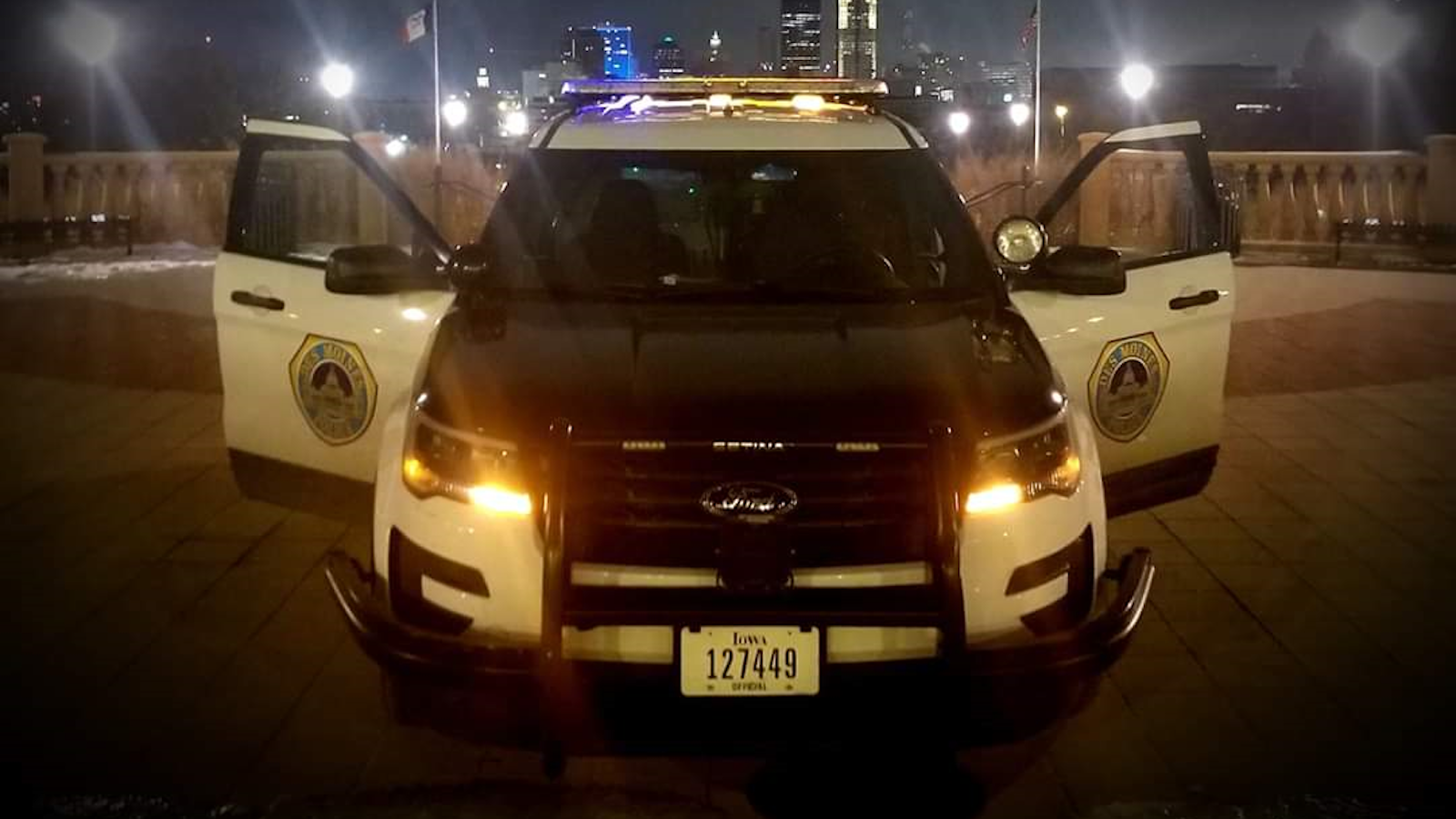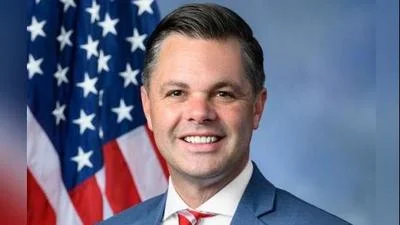The White House announced an updated plan to combat human trafficking last month and Des Moines Sgt. Brady Carney spoke about the issue that also affects the local community. | Des Moines Police Facebook page
The White House announced an updated plan to combat human trafficking last month and Des Moines Sgt. Brady Carney spoke about the issue that also affects the local community. | Des Moines Police Facebook page
Earlier this month President Joe Biden's administration announced an updated National Action Plan to Combat Human Trafficking that aims at helping the underserved and underrepresented victims, specifically migrants and the unemployed.
Sgt. Brady Carney of the Des Moines Police Department spoke Thursday, Dec. 23, about the prevalence of human trafficking in the state of Iowa and how police departments have addressed the issue.
“Unfortunately, human trafficking is prevalent in and around the Des Moines metro much like it is in many other places,” Carney told the Des Moines Sun. “As more training and ongoing education becomes available, law enforcement is gaining ground on identifying and investigating trafficking cases. Suffice to say, as we learn more about trafficking, we’re also learning how common and present it is here in the Des Moines metro. Along those lines, law enforcement is also able to help educate the general public and businesses about what human trafficking looks like and how to go about combating it.”
Carney said his department is fortunate to have a great working partnership with the U.S. Attorney’s Office and is able to take some local investigations straight to the office for federal prosecution.
“Their victim resources, case load, connections with other federal agencies and strict/mandatory sentencing guidelines make federal prosecutions greatly beneficial,” he said.
Carney said federal agencies, in comparison to state and local ones, have more resources to combat the issue. He said there are many task forces that partner local, state and federal organizations for types of crime, but in the case of human trafficking they are “sparse.”
“Thankfully for us on a local level, the U.S. Attorney’s Office has been able to help us tap into certain federal resources that assist us in prosecuting complex, long-term trafficking investigations,” Carney said. “Keeping local agencies involved throughout an investigation is important as it’s very common that many of our traffickers and victims are local people who are already known to law enforcement.”
The National Human Trafficking Hotline received 218 calls from Iowa in 2017 as well as 74 Iowa-based human trafficking cases, according to the trafficking prevention site Chains Interrupted. Half of the cases involved minors. One study found that there were 1,350 unique individuals advertised for sale for sex online every month in the state.
It is estimated that 25 million people worldwide are subjected to human trafficking and/or forced labor. This is a $150 billion business.
The Justice Department released a statement last year saying that the federal government awarded $101 million to fight human trafficking. Former Attorney General William Barr compared human trafficking to the “modern-day equivalent of slavery.”
“The Department of Justice is relentless in its fight against the perpetrators of these heinous crimes,” Barr said in a September 2020 release when the funds were announced. “Working with state and local law enforcement and community victim service providers, we will continue to bring these criminals to justice and deliver critical aid to survivors.”
The National Action Plan uses a previously adopted pillar system of “prevention, protection, prosecution and partnership.”
“Prevention” involves education of vulnerable populations, promoting community support for the underprivileged and creating trade policy to address trafficking in supply chains.
“Protection” focuses on the safety of victims that have been rescued.
“Prosecution” involves cooperation between local, state and federal officials and also greater action from law enforcement.
The last pillar, “partnerships,” involves the need for U.S. cooperation with domestic private sector organizations and foreign governments.
The plan also focuses on the societally marginalized, which Carney said is a good thing moving forward.
“The trafficking cases I have been a part of involved vulnerable victims from all aspects of life, varying in age, race, family background, childhood trauma, education, sobriety, mental health, etc.” he said. “Trafficking happens everywhere, and it impacts everyone. Sticking up for all vulnerable victims and helping them hold their traffickers accountable is important.”






 Alerts Sign-up
Alerts Sign-up